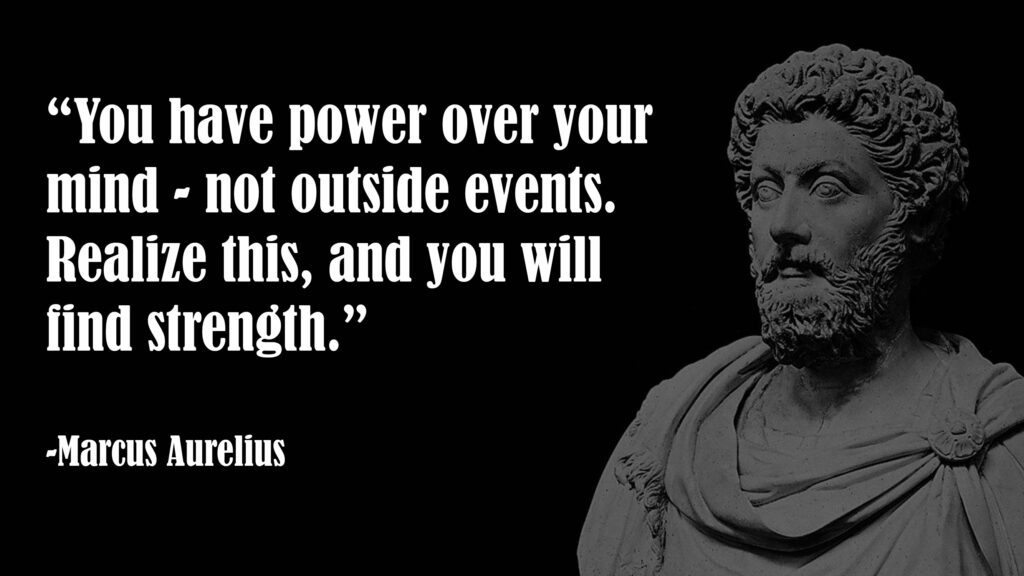The importance of Stoicism and why it could save a country

Stoicism has been touted as a trait of “toxic masculinity” within the last few years by those who tend to be more “woke,” and while I’m not here to reject the idea that “toxic masculinity” exists, I do reject the version that those who are “woke” have created. Those who view Stoicism as problematic can’t define Stoicism because they don’t really know what it is, but many have labeled it as something that is inherently masculine and therefore have put it under the umbrella of “toxic masculinity.”
The reality is that, yes, Stoicism is most often featured as a characteristic in men, and when you hear people talk about Stoicism, they are most likely of the male-sex. However, the reality is Stoicism is something anyone can practice regardless of gender and even age. There are lessons in Stoicism that children can pick up, practice, and understand, and that’s important because children are the future, and so because of that, Stoicism could be at least one answer to saving a dying country.
A Very Brief History of Stoicism
The origins of Stoicism are usually divided into three distinct phases. Early Stoa—3rd century BCE, Middle Stoa—1st and 2nd century BCE, and Late Stoa which persisted throughout the 1st and 2nd century CE. The philosophy was founded by Zeno of Citium in Athens in the early 3rd century BC, and much like today, its beginnings were in a drastically changing world where earlier codes of conduct and ways of understanding things was no longer applicable. It is an Ancient Greek philosophy of personal virtue ethics influenced by the older schools, and Stoicism has proven to be such a strong and highly influential philosophy that its teachings are still discussed and practiced today, thousands of years later.
Due to Stoicism being a philosophy, it can be practiced by anyone, regardless of faith. Christians and Atheists alike partake in the practice of this philosophy because they see a benefit to its teachings and its lessons. When you really dive into it, the philosophy speaks to a larger audience than what most probably think at first. In fact, Stoicism actually influenced Christianity.
Its a philosophy that’s not meant to teach people how to be toxic, but rather, how to be happy. Toxic people are rarely happy, so the idea that Stoicism could ever be a trait of “toxic masculinity” is ludicrous. It’s informed by its system of logic and views on the natural world. The practice of virtue asserted as both necessary and sufficient to achieve eudaimonia (happiness)—something that is very different than what kids are being taught today when it comes to things like social emotional learning (SEL) and ideas that they get introduced to online that are more about instant gratification regardless of the consequences later.
Some Lessons in Stoicism
There are many lessons of Stoicism that anyone at any age can learn, so I wanted to introduce three of them here.
1. Understanding what you can control and what you cannot control
“Nobody can hurt me without my permission.” -Gandhi
This is an expression that has been said many different ways by many different philosophers for thousands of years. However, it may seem kind of strange. A person doesn’t need your permission to rob or beat you. Instead, Gandhi is referring to how words affect people. You cannot control what other people do and say, but you can control how you react to what others do and say. You can choose to be offended by someone’s words, or you can choose to turn the other cheek. You can choose to allow someone else to have power over your emotions, or you can choose to have power over your own emotions.
This flies directly in the face of the “words are violence” narrative, and for good reason. The people who believe that “words are violence” are perpetual victims who look to give their power over to anyone they can. We see all the time how angry and scared they are because of this philosophy of “words are violence” that they have chosen to embrace, disallowing them to act with reason and logic. And here’s the thing, this philosophy infiltrated government schools decades ago. When I was five-years-old, I distinctly remember my Kindergarten teacher teaching us, “Sticks and stones may break my bones, but words can also hurt me.” That was in the year 2000, and the exact opposite of what we should be teaching children. A society that is constantly offended is a society that is destined to collapse.
2. Care about how you think about yourself, not how others think about you
“I have often wondered how it is that every man loves himself more than all the rest of men, but yet sets less value on his own opinions of himself than on the opinions of others.” -Marcus Aurelius
In woke-world, if you don’t accept someone’s gender and/or sexuality, then you are “devaluing them as a human being,” and the woke folk freak out over it. In reality, and how I choose to live my life as a man who happens to be gay, is I put zero value in how others think of me, because I am the person who gets to decide how much value other’s opinions of me have. I’ve had multiple people tell me they don’t accept my sexuality. I tell them, “Okay,” because I don’t care. It is not something for them to accept. The only person who truly needs to accept my sexuality is me. If you can respect my humanity, which is not tied to my sexuality, we will be just fine.
At the end of the day everyone needs to remember that it is your own words and actions that define you, not the words of other people. What other people say about you, positive or negative, is a reflection of them only and not of you.
3. Don’t worry about things that don’t matter
“Man is disturbed not by things, but by the views he takes of them.” -Epictetus
Everyone is guilty of freaking out over things that don’t really matter. Whether it’s a crack in a cellphone, a stain on the carpet, or someone cutting us off in traffic. People can let one bad thing ruin their whole day, and so you have to ask yourself, did you have a bad day, or a bad five-minutes?
When I have a rough start to my morning—either I overslept, or I injured myself, or something random just throws me off—I like to pause, take a deep breath, and remind myself that this moment does not define my day.
We are often times obsessed with the small, insignificant details that we forget the bigger picture, and this can lead to a poor quality of life where we make bad decisions that make things worse than what they could have been if we had just moved on from that one bad moment in time. A happier life starts by accepting the bad moments for what they are, and then moving past them for a better future.
In woke world, we must constantly dwell on the problems of the past and are not allowed to move forward into making positive changes. There is no hope in this way of thinking, and is therefore not a way to bring up children.
In Closing
I view Stoicism as a philosophy to practice throughout our lives. Being human, we’re all going to fall short of being completely virtuous, but Stoicism teaches that we should at least try to act accordingly for the sake of our own happiness. This is a philosophy I believe all people can benefit from and one I believe needs to be taught to people of all ages for the sake of people’s happiness and the betterment of the world around us
Thanks for reading. Be sure to like, share, and subscribe. You can also help support independent journalism in Kansas by buying me a coffee at buymeacoffee.com/kscon.

Ian Brannan
Ian Brannan is an independent journalist who founded The Kansas Constitutional in April 2022. His work focuses on issues including abortion, Convention of States, drug policy, education, government, LGBT issues, media, and more. He is also the co-host of the Rainbow Rabble-Rousers podcast.
Like our work? Help support us at buymeacoffee.com/kscon.

